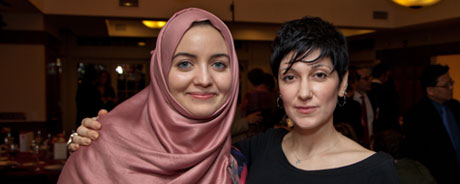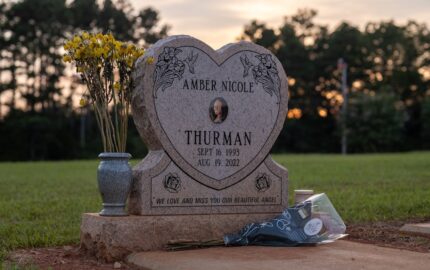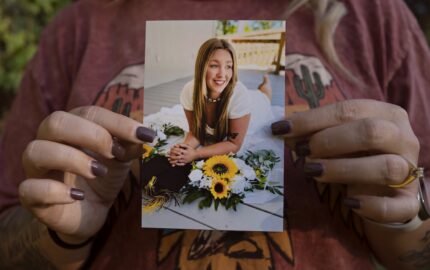
CAMBRIDGE, Mass. – Nieman Fellows at Harvard University have selected Mohammed “Mo” Nabbous, founder of Libya Alhurra TV, as this year’s recipient of the Louis M. Lyons Award for Conscience and Integrity in Journalism. Nabbous, who was killed in March, was chosen as a representative of all those who courageously worked to disseminate news during the Arab Spring. In doing so, they helped further the cause of a free press.
In their citation, the Nieman Fellows stated: “Mohammed ‘Mo’ Nabbous and others like him, at great personal risk, helped report the facts and spread the news of the 2011 Arab Spring uprisings.”
An Internet technology specialist, Nabbous founded and ran the Internet division of Libya Alhurra TV, a widely viewed live video channel, and transmitted the first images and sounds of the civil unrest in Libya to the outside world in February 2011. Using his technical and social media expertise, he was able to bypass government blocks on the Internet and, via satellite, streamed live raw footage and commentary from cameras set up around the city of Benghazi in the critical few days before any independent media were present.
Nabbous was shot and killed on March 19, 2011 while reporting on attempts by government forces to fight anti-Gadhafi rebels and attack civilians in Benghazi. His death was announced on the live stream he had created by his wife, who was then nearly eight-months pregnant.
“At great danger to himself and with tremendous courage, Nabbous demonstrated the power of journalism in a country that hadn’t known a free press in decades. He became the eyes and ears for the world, paying the ultimate price. And for that we honor him,” the Nieman Fellows said.
The award will be presented posthumously during an event at the Nieman Foundation for Journalism at Harvard on Dec. 1, 2011.
The Nieman class of 1964 established the Louis M. Lyons Award in honor of the Nieman Foundation curator who retired that year after leading the institution for a quarter of a century. Lyons was a forceful advocate for freedom of the press. While he was curator of the Nieman Foundation, he broke new ground by diversifying the class of fellows to include women, minorities, and international fellows. The award honors displays of conscience and integrity by individuals, groups or institutions in communications and is decided each year by the members of the Nieman class.
The 2012 Nieman Fellows, including 12 international and 13 U.S. journalists, reached their decision after serious thought on the role of citizen journalists in the fast evolving media landscape. They believe that honoring Nabbous is in keeping with Lyons’s legacy and is recognition of the vital and historic contributions that Nabbous, and many others like him, are providing to journalism.
Dorothy Parvaz, an Al Jazeera journalist and Nieman Fellow in the class of 2009, will deliver an address during the Lyons Award ceremony. After entering Syria to cover uprisings there in April 2011, Parvaz was detained and held in one of the country’s secret prisons for three days before being sent through extraordinary rendition to Iran, where she was born. She then spent 16 days being interrogated on spying charges in Evin Prison before she was released, due in part to the international pressure put on the Iranian government to win her freedom.
The Nieman Foundation for Journalism at Harvard administers the oldest fellowship program for journalists in the world. Grants are awarded to accomplished professionals who come to Harvard for a year of study. More than 1,300 journalists from 91 countries have received Nieman Fellowships since 1938. The foundation’s other initiatives include Nieman Reports, an influential quarterly magazine/website that explores contemporary challenges and opportunities in journalism; the Nieman Journalism Lab, a website that reports on the future of news and identifies emerging business models, innovation and best practices in journalism in the digital media age; Nieman Watchdog, a website that poses questions the press should ask and teaches journalists how to monitor and hold accountable all those who exert power in public life; and Nieman Storyboard, a website that showcases exceptional narrative journalism in every medium and explores the future of nonfiction storytelling.

